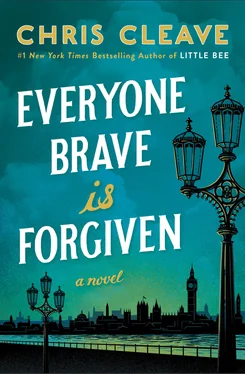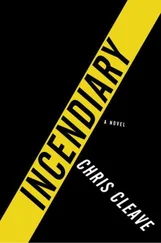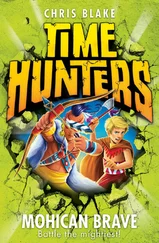“God no,” said Hilda. “They’re nice in uniform, not battle dress.”
AN ARTILLERY SHELL ROSE high over Salisbury Plain and slowed in the rain at the zenith of its arc. Beneath it the wide grasslands moved in a green blur, resolving around the azimuthal rim into the still marshes of Somerset and the unchanging hills of Dorset. With the scream of a fresh start the shell dropped from the sky and buried itself shallowly under the meadowland turf of the plain.
There was a deficiency in the impact fuse, and the shell did not explode. It lay in its pocket of black soil in the bed of a shallow ravine. Its mechanism trembled. The thing could barely contain itself.
Three miles distant, Alistair Heath stood in driving rain while a sergeant major screamed at him.
“WHAT MAKES MY GRASS GROW?”
“ Blood, blood, blood! ” the men replied.
“WHOSE BLOOD?”
“ The enemy’s! ”
“WHOSE ENEMY?”
“ The King’s enemy! ”
Alistair joined in the bayonet drill without enthusiasm. He had heard the shell falling — a stray from the gunnery range. The first problem of war was that no one was any good at it yet.
He could not help thinking of shells as things he had always collected, with his sisters, on the beaches at Lulworth and Bracklesham. When the instructors spoke of firing them, he could not help seeing the dumpy 3.7-inch howitzers projecting cockles and scallops in looping trajectories over a blue horizon. Invariably the scallops, when he visualized them, were the jaunty little things from Botticelli’s The Birth of Venus .
“HEATH!”
“Yes?”
“PERHAPS YOU BELIEVE YOURSELF TO BE ABOVE ALL THIS? ARE YOU GIVING THIS VITAL DRILL, MR. HEATH, ONE HUNDRED PERCENT OF YOUR GRACIOUS CONCENTRATION?”
“Oh yes, absolutely.”
“OH YES ABSOLUTELY WHAT?”
Alistair could not think what the man was driving at.
“Yes, I am giving it my full attention.”
“YES I AM GIVING IT MY FULL ATTENTION WHAT?”
The man was retarded. The wind blew over the wide miles of Salisbury Plain — hateful and blasted, pocked with the charred metal twisted in the violent shapes it had cooled to. It was a southwesterly wind, wet with brine from the Channel, sharp from the numb Purbeck Hills. It had passed through no city and picked up nothing of the scent of men and their consolations. It slowed Alistair’s brain and took the feeling from his fingers. And here the sergeant major stood infrangible in the wind and the rain — as he had stood the whole fortnight — with his chest puffed out and his stomach sucked in and his face vermilion with fury. Now he was staring at Alistair and still waiting, apparently, for him to say something.
“Oh!” said Alistair. “I mean, sir .”
The other men laughed. After a month, one shouldn’t forget the word.
“WHAT, SIR?”
“I’m sorry?”
“WHAT IS THE MESSAGE THAT YOU ARE COMMUNICATING TO SIR, SIR?”
“Oh I see,” said Alistair. “Sorry. I am giving this exercise one hundred percent of my attention, sir.”
“THAT IS BETTER,” said the sergeant major.
Alistair was glad the man felt that way. The bayonet drill resumed.
“WHAT MAKES MY GRASS GROW?”
“ Blood, blood, blood! ”
“I CAN’T HEAR YOU, LADIES! WHOSE BLOODY BLOOD?”
“ The enemy’s blood! ”
“WHOSE ORRIBLE NARZI ENEMY?”
“The King’s horrible Nazi enemy!”
“THEN KILL THE ENEMY! WHAT DO YOU SUPPOSE THE POINTY END IS FOR? DO IT TO HIM BEFORE HE DOES IT TO YOU!”
The men roared and the sand oozed in clotted clumps from the bags they stuck with their bayonets. Every wound Alistair drove into the wet sacking opened a corresponding rent in his morale. How he hated this — the indefatigable tyranny of the sergeant major, and the insidious Salisbury chill that grew inside one like an infection after two weeks camped out under dripping canvas. Most of all, he hated the flicker of warmth that hatred gave you. You imagined the sergeant major on the point of your blade, and felt a horrid little twitch at the thought of driving it home.
He executed the bayoneting to the minimum standard that left the King’s enemy eviscerated, and when it was over and the sergeant major blew the whistle, he took his rifle and walked off a little way. He unstrapped his helmet and let the rain wash the sand off his face. He threw his pack down on a tussock to keep it off the sodden ground, and ducked into its lee to light his pipe. The damp tobacco shivered in the bowl. The matches failed one by one. In bleak exhaustion, Alistair watched the last one stutter.
“Nuh… need a light, Huh… Heath?”
It was Duggan, the only man on the course from that indeterminate age the other side of thirty. He was the one who used the standard-issue folding knife and fork to skin and bone the sardines from their ration tins, as if he were taking tea at Fortnum & Mason. He held his rifle slightly away from his body when they marched, the way one might carry a child that had wet itself.
“Thanks,” said Alistair.
With Duggan’s cigarette lighter it was easier. His pipe caught and the mild blue smoke was a comfort. It blew, he supposed, toward London.
“In the muh in the muh in the mood for company?” said Duggan.
Alistair eyed his pipe bowl. “I’m stuck for conversation, after that drill.”
Duggan sat on his own upturned pack. “If the wuh… wisdom of age may guide you, I pretend that the suh… sandbag is just a suh… sandbag.”
Alistair looked up. “It bothers you too?”
“The way I see it, all the bloodthirsty sh… shouting is more for the benefit of the muh… men. You’ll be an officer, I take it?”
“I hope so. I’m to begin a conversion course, assuming I get through this one without bayoneting the sergeant major.”
Duggan got a cigarette lit. “I shouldn’t think they’d necessarily muh… mark one down for that. Anyway, I dare say officer training will be a more suh… civilized business.”
Alistair nodded. “They’ll assemble us around a cheese board. The CO will ask, ‘What do we serve with this?’ and as one we shall reply…”
“ Port! Port! Port! ”
“Whose port?”
“ The King’s port! ”
Alistair grinned. “We are officer material.”
Duggan gave a wire-thin smile and used the hot end of his cigarette to trace the undulations of the plain. “Don’t you luh… loathe this vile place?”
Alistair puffed at his pipe. “It was a paradise before the Army took it over. Full of little hamlets bursting with cheerful cottages, every one of them with a roaring hot fire and a unicorn tethered outside.”
“Suh… sounds like Peckham.”
“Is that where you’re from?”
Duggan shivered. “In the suh… sense in which the human suh… soul is eternal, no one is actually from Peckham. Some of us are living there pro tempore, suh… so help us.”
“I’m north of the river. Camden.”
“Oh, the guh… glamour. And what did you do up there before you began doing whu… whatever the Army tells you?”
“I was a very junior conservator at the Tate. I made tea and reminded the night cleaners not to use Vim on the actual canvases.”
“One wonders how the nation will muh… manage without you.”
“Oh, and I suppose you were the archbishop of Canterbury?’
“I’m an actor. Oh, the stuh… stammer disappears on the stuh… stage.”
“And you signed up for this?”
“I was suh… sick of being Second muh… Murderer. And so here I am. Rehearsing to be the fuh… first.”
“And how are you finding it?”
Читать дальше












